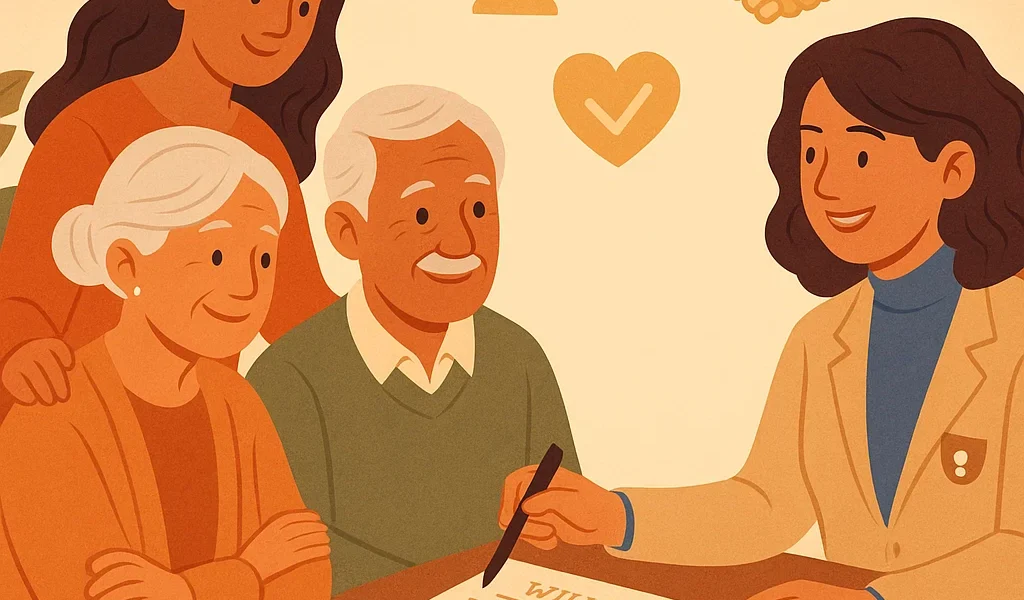As the population ages, the demand for elder care lawyers is increasingly significant. These legal professionals specialize in issues affecting the elderly, including estate planning, guardianship, and elder abuse. If you’re looking for “elder care lawyers near me,” this article will guide you through the importance of these services, how to find the right lawyer, and what to expect during the process.
Table of Contents
- What is Elder Law?
- Why Do You Need an Elder Care Lawyer?
- 2.1 Estate Planning
- 2.2 Guardianship Issues
- 2.3 Elder Abuse and Neglect
- How to Find Elder Care Lawyers Near Me
- 3.1 Research Local Resources
- 3.2 Ask for Referrals
- 3.3 Utilize Online Directories
- What to Expect When Working with an Elder Care Lawyer
- 4.1 Initial Consultation
- 4.2 Legal Fees and Costs
- 4.3 Ongoing Support and Communication
- Conclusion
What is Elder Law?
Elder law is a legal field that focuses on issues related to aging, including healthcare, long-term care, and the legal rights of older adults. The complexity of these matters necessitates specialized knowledge, making elder care lawyers essential for navigating the intricacies of the law as it pertains to seniors.
Elder law encompasses a range of legal services tailored to meet the unique needs of elderly individuals. These services are crucial for protecting seniors’ rights and ensuring their well-being.
Why Do You Need an Elder Care Lawyer?
The need for elder care lawyers arises from various challenges that older adults face. Below are some key areas where legal assistance is invaluable.
Estate Planning
One of the most critical aspects of elder law is estate planning. This involves preparing for the distribution of an individual’s assets after death. An elder care lawyer can help seniors create wills, trusts, and powers of attorney to ensure that their wishes are honored.
- Wills: A will outlines how a person’s assets will be distributed upon their death. An elder care lawyer can help draft a legally binding document that reflects the individual’s desires.
- Trusts: Trusts can provide more control over when and how assets are distributed, potentially minimizing estate taxes and avoiding probate.
- Powers of Attorney: These legal documents designate someone to make financial or healthcare decisions on behalf of the individual if they become incapacitated.
Guardianship Issues
As seniors age, some may become unable to make decisions for themselves. In such cases, guardianship may be necessary. An elder care lawyer can assist in establishing guardianship, ensuring that the individual’s best interests are prioritized.
- Types of Guardianship: There are various types of guardianship, including full guardianship, limited guardianship, and conservatorship. An elder care lawyer can help determine the most appropriate type based on the individual’s needs.
- Guardianship Proceedings: The process of establishing guardianship often involves court proceedings, which can be complicated. An elder care lawyer can guide families through this process, helping to ensure compliance with legal requirements.
Elder Abuse and Neglect
Unfortunately, elder abuse is a significant concern in today’s society. This can take many forms, including physical, emotional, financial, and neglect. An elder care lawyer can help victims and their families navigate the legal system to seek justice and protection.
- Recognizing Abuse: Understanding the signs of elder abuse is essential for timely intervention. Common indicators include unexplained injuries, sudden changes in financial situations, and withdrawal from social activities.
- Legal Recourse: Victims of elder abuse have legal rights. An elder care lawyer can help pursue claims against abusers and navigate the complexities of elder abuse laws.
How to Find Elder Care Lawyers Near Me
Finding the right elder care lawyer can be a daunting task. However, with the right approach, you can identify a qualified professional to assist you or your loved ones.
Research Local Resources
Start by researching local resources available in your area. Many organizations focus on senior care and legal assistance, which can provide valuable recommendations.
- Bar Associations: Most states have a bar association that can offer referrals to elder care lawyers. They may have a dedicated section for elder law that can help narrow your search.
- Senior Centers: Local senior centers often have connections to legal resources. They can provide information on elder care lawyers in your vicinity.
Ask for Referrals
Personal recommendations can be invaluable when searching for an elder care lawyer. Consider reaching out to friends, family, or professionals in related fields.
- Health Professionals: Doctors, social workers, and other healthcare providers may have recommendations for elder care lawyers who specialize in elder law.
- Friends and Family: If you know someone who has previously worked with an elder care lawyer, ask about their experience and whether they would recommend that attorney.
Utilize Online Directories
The internet can be a powerful tool in your search for elder care lawyers. Various online directories can help you locate legal professionals specializing in elder law near you.
- Legal Websites: Websites like Avvo, FindLaw, and Nolo allow you to search for lawyers based on location and practice area. You can read reviews and check their credentials.
- Social Media: Platforms like LinkedIn can also provide insights into lawyers’ backgrounds and areas of expertise. You may find professionals who actively engage in discussions related to elder law.
What to Expect When Working with an Elder Care Lawyer
Once you have identified potential elder care lawyers, it’s essential to understand what to expect during the engagement process.
Initial Consultation
Most elder care lawyers offer an initial consultation, which is an opportunity for you to discuss your needs and assess whether the lawyer is a good fit.
- Preparation: Before the consultation, gather any relevant documents, such as wills, financial statements, and medical records. This information will help the lawyer understand your situation better.
- Questions to Ask: Prepare a list of questions to ensure you cover all necessary topics. Inquire about the lawyer’s experience in elder law, their approach to your specific issues, and their fee structure.
Legal Fees and Costs
Understanding the cost of legal services is crucial when hiring an elder care lawyer. Fees can vary significantly based on location, experience, and the complexity of the case.
- Fee Structures: Common fee structures include hourly rates, flat fees for specific services, or contingency fees for certain types of cases. Be sure to clarify how fees will be charged and whether there are additional costs involved.
- Payment Plans: Some lawyers may offer payment plans or sliding scale fees based on your financial situation. Don’t hesitate to discuss these options during your consultation.
Ongoing Support and Communication
Effective communication is vital when working with an elder care lawyer. Ensure that you have a clear understanding of how the lawyer will communicate updates and progress regarding your case.
- Regular Updates: Ask how often you can expect updates on your case and the best method for communication (e.g., phone, email, in-person meetings).
- Access to Resources: A good elder care lawyer should also provide you with resources and information that can help you make informed decisions throughout the process.
Conclusion
In summary, the role of elder care lawyers is crucial for protecting the rights and interests of seniors. Whether you need assistance with estate planning, guardianship issues, or addressing elder abuse, finding the right lawyer can significantly impact the outcome of your situation. By utilizing local resources, seeking referrals, and exploring online directories, you can identify qualified elder care lawyers near you.
Once you’ve found potential candidates, prepare for your initial consultations and discuss your needs openly. Understanding the costs involved and maintaining clear communication will foster a productive relationship with your elder care lawyer. With the right legal support, you can ensure that the well-being of your loved ones is prioritized and that their legal rights are upheld.





